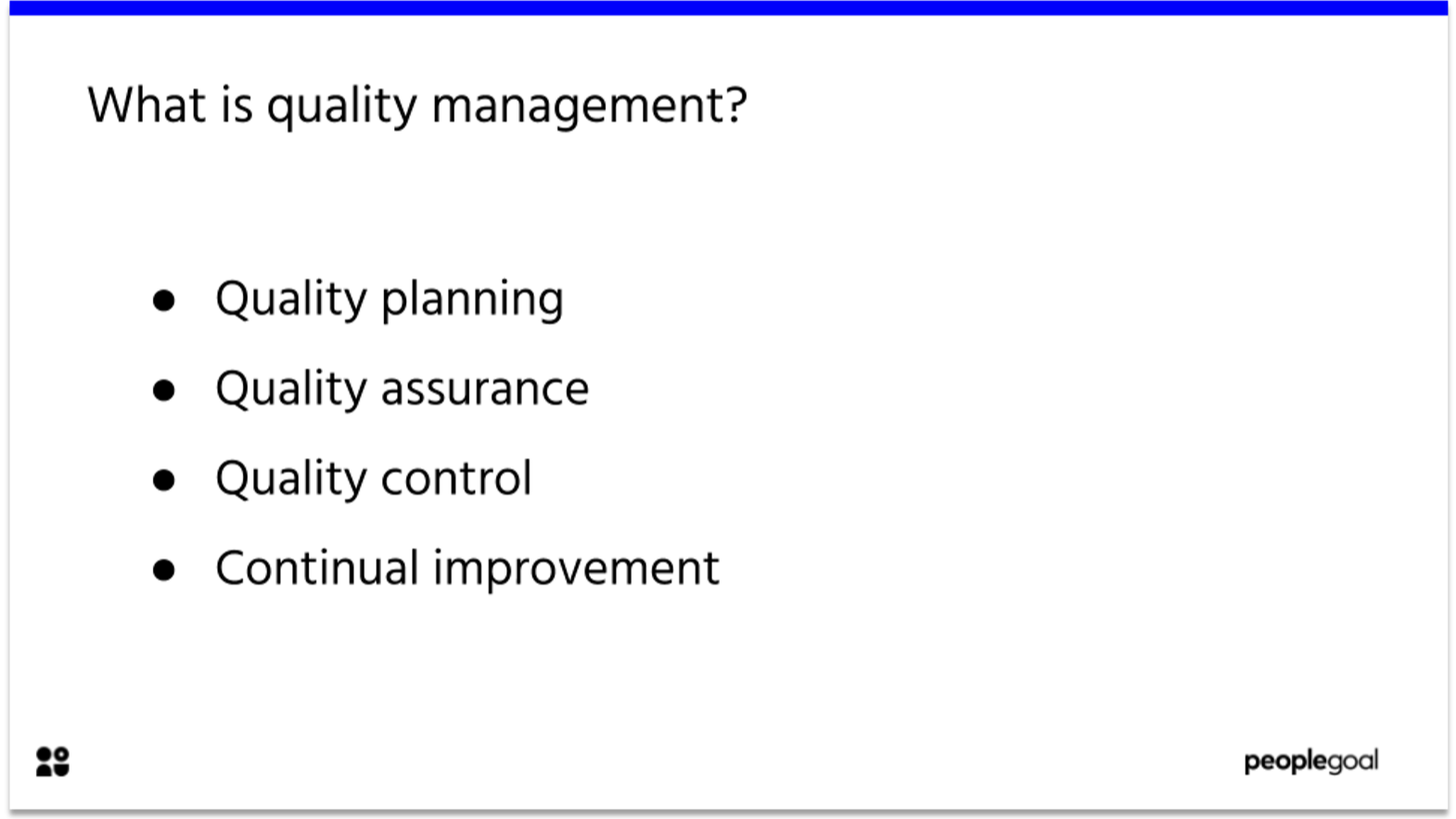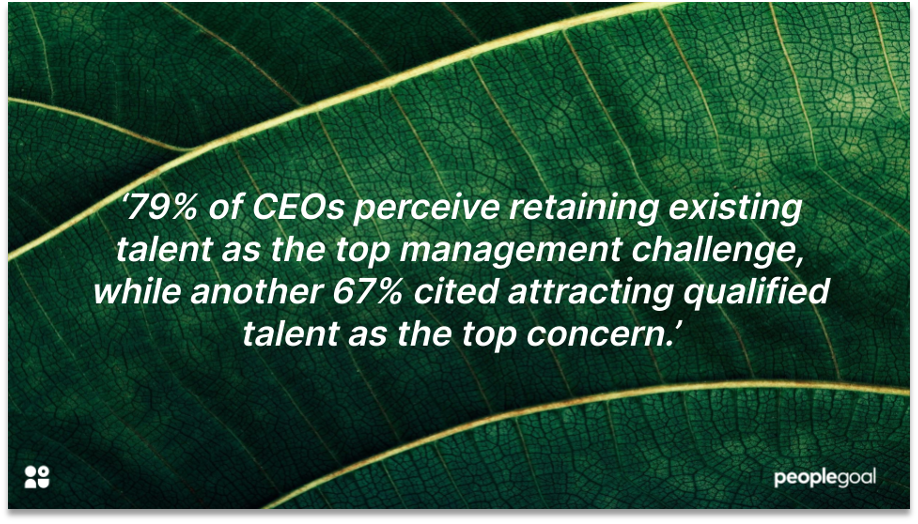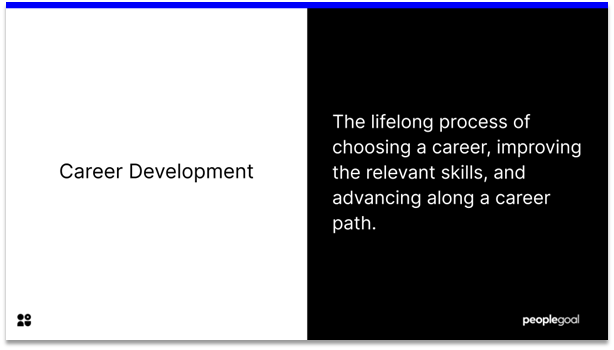Below are some top tips for performance reviews which take the first step towards development – with empathy and adjustment for the challenges of remote work.
Approaching performance reviews in 2025
2025 was a bolt out of the blue for most companies. The pandemic brought a host of complex problems to employees – with everyone effected in different ways. Care responsibilities came to the fore as employees supported vulnerable family members, and school closures meant childcare and work duties clashed. Not to mention, staff are processing a whole new set of stressors.
As a result, many companies have shied away from annual performance reviews. Twitter has suspended their reviews for a year. It seems the last thing we need is an evaluation – especially since, according to Gallup, only 14% of employees ‘strongly agree’ that performance reviews motivate them.
But feedback is essential to our career development – and to every company’s growth. If we are mindful of these challenges, formal employee performance reviews provide a deep dive into company-wide performance – and set employees up for success.
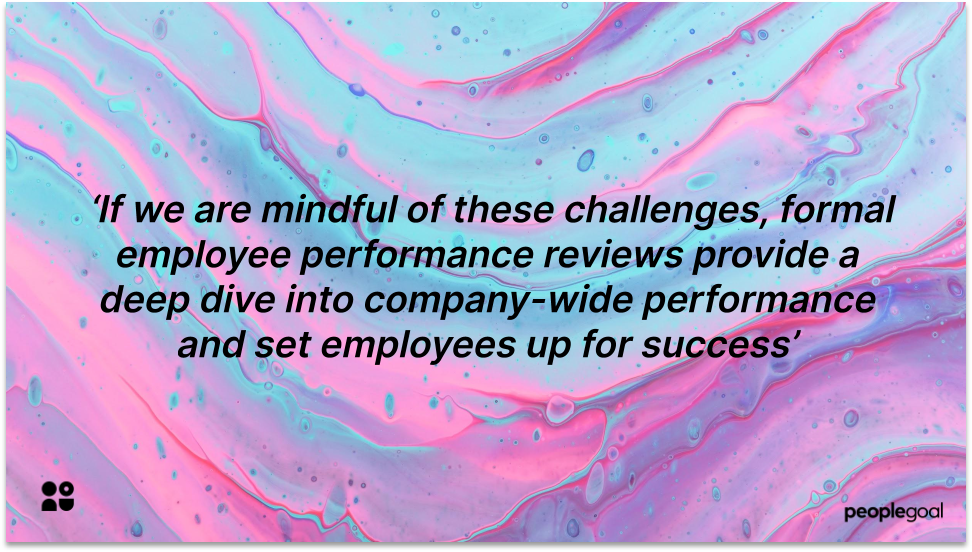
1) Keep feedback constructive
Remind yourself of what constructive feedback really is. Constructive feedback locates areas for improvements that are actionable. It is realistic about how we can change our performance – and provides steps to get us started.
2) Never mix pay negotiations and feedback
Jennifer Robison warns against discussing pay and performance in the same meeting. This makes employees feel the performance review process is ‘make or break’, on which their income depends – an attitude that is likely to place undue pressure on team members!
3) Roll out self-assessments
Self-assessment is often looked down upon, due to the assumption that employees will give themselves an ‘easy A’.
Even if they are biased towards a positive outlook, they allow employees to give evidence of their achievements.
Gathering this information helps with the move to remote work. Managers lack data they would have had in-office. Self-assessments help each employee’s achievements to be recognized.
Human resources software can make this process simple.
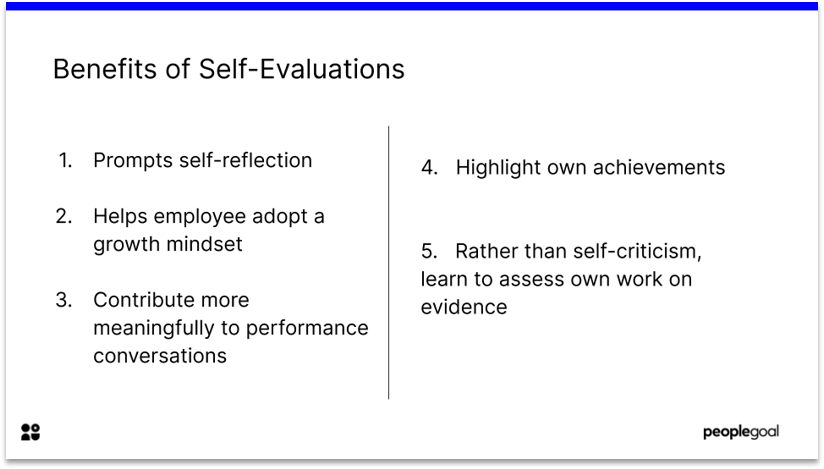
4) Use 360 Feedback to get a well-rounded perspective
Data gaps mean it may be useful to get a range of perspectives. 360 Feedback gathers the perspectives of staff at all company levels to evaluate an employee’s performance.
This means managers have more information at their disposal as they write performance appraisals. Additionally, different company relationships will value different skills.
In Harvard Business Review, Anna Tavis writes that skills such as collaboration are ‘at a premium’ during the pandemic, and performance reviews should surpass the ‘transactional’. Peers are more likely to rate colleagues on their teamworking skills – which offers a more holistic perspective of the value an employee brings.
360 Feedback Benefits
-
Employee self-awareness
-
Culture of open feedback
-
Multiple perspectives for more evidenced appraisals
-
Development benefits all company levels – as all have a say
-
Peer reviews mean a broader range of skills assessed, including teamwork and equitable practices
-
Both managers and employees receive evaluation
5) Link feedback to company-wide targets and culture
Sometimes we think feedback works best if it’s personal – but this isn’t necessarily true. FastCompany highlights the problem of ‘egocentric bias’ in our response to performance reviews – where we frame experiences in line with our perspective.
Feedback should highlight behaviors and results, not inherent or personal traits. This can help us to take on feedback more productively, as we can detach it from our view of ourselves.
Keep feedback grounded in a company’s objectives and key results. This helps employees work co-operatively as they strive towards shared goals.
Examples of company-centered feedback:
-
‘Your excellent teamwork skills are in line with our company’s values of collaboration and community’
-
‘In order to fulfil our targets, we will need you to work at a quicker pace. How can we help you achieve this?’
-
‘Our company aims to achieve 10% sales growth by June 2021. Your marketing strategy gives us the structure we need to approach this’
6) Communicate feedback in an empathetic way
Most companies moved into remote work rapidly. Employees had to adapt quickly, and some managers allowed a ‘grace period’ for this transition. It’s important to take an empathetic approach and apply ratings positively where possible.
Communicating your feedback empathetically is key. Organize video performance conversations and explain the thought process behind your appraisal. Evidence the discussion with examples. Face-to-face interaction is key to establishing trust and reading body language- so switch video on!
Then ask questions. The review process is not one-sided – but works best if responsive. Questions remind the employee that reviews are intended to support their development. In turn, this boosts employee engagement
Questions to ask employees in review meetings:
-
‘Are you lacking any resources you need to fulfil your role?’
-
‘Are there are learning and development opportunities you think you would benefit from?’
-
‘How do you think you have progressed this year/6 months?’
-
‘How can I better support you as a manager?’

7) Recognition for high performers
As Rebecca Knight notes in the Harvard Business Review, in times of uncertainty, positive feedback is reassuring. Make sure you recognize high-performing staff. Employers sometimes take their best employees for granted in a tough employment market. However, managers who fail to recognize their staff will see a high employee turnover.
Instead, leave employees feeling motivated and on track.
Ways to recognize excellent work:
-
Reward a range of skills, including teamwork and resilience
-
Specific praise in performance conversations
-
Team meeting shout-out
-
Ensure praise is grounded in results not character traits
8) Link performance reviews to more frequent, informal check-ins
While formal performance reviews might only happen one or two times a year, ongoing feedback is important. Schedule regular one-on-ones to check-in with employees. You can use software to ensure discussion points from informal check-ins are reviewed.
Communication really is the key to navigating transitions such as remote work as a company. Reviews and regular feedback ensure you keep up the performance conversation!
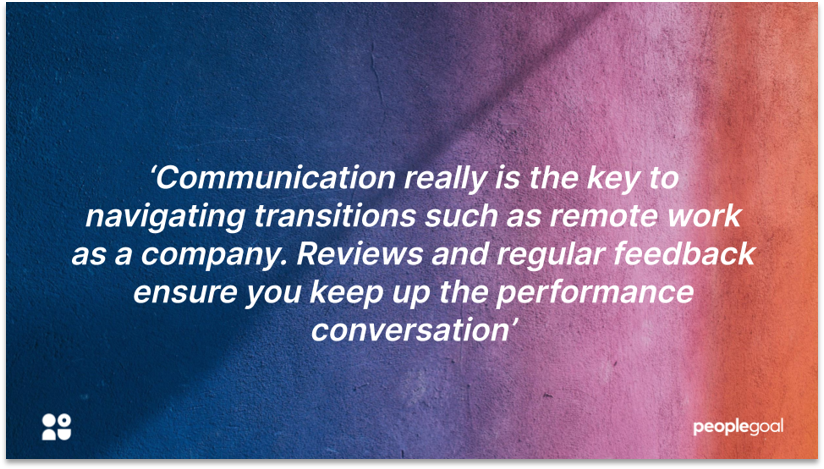
Next steps for great performance reviews
Performance reviews can inform leaders on how the transition to remote work is going. They should be productive, not punitive. Try to foster common purpose by reminding employees of company-wide targets.
PeopleGoal streamlines the review process. It enables you to include multiple-managers – so that you get a holistic view of employee performance. Find out how our Reviews app can support your company by booking a demo today.
Ready to 3x Your Teams' Performance?
Use the best performance management software to align goals, track progress, and boost employee engagement.


